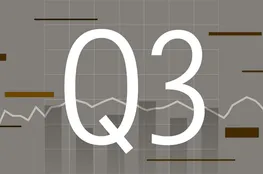The global LNG (Liquefied Natural Gas) markets are on an upward trajectory, with demand soaring and Greek shipowners leading the charge in capitalizing on this growth. According to a recent study by maritime consultancy Veson Nautical and VesselsValue, Greek shipowners invested approximately $13.8 billion in 59 newly constructed LNG vessels in 2021 alone. This significant expenditure is part of a broader strategy where Greek owners have diversified their traditional tanker, bulker, and container fleets to include LNG and other gas vessels, signifying a shift in focus towards more sustainable energy solutions.
Greek shipowners have further invested around $18 billion into new gas vessels, highlighting their commitment to expanding their fleet into lucrative sectors that include LNG. Notably, there has also been a $4 billion investment in 41 LPG vessels, one of the most undervalued yet strategically important shipping classes globally. LPG remains a crucial fuel source for many developing nations, suggesting that Greek shipowners are positioning themselves to meet future demands in emerging markets. Their investments are not limited to LNG and LPG; they have also allocated $12.2 billion to 167 tanker vessels, $4.1 billion to 109 bulkers, and $3.1 billion to 39 containerships.
As Dan Nash, director at VesselsValue, articulates, "Greek shipowners have taken bold investment stances that could shape the future of global trade."
Piraeus-based Capital Ship Management emerges as the leading investor, having committed approximately $4.7 billion towards expanding its fleet with 15 large LNG vessels, new ammonia carriers, medium gas carriers, and carbon dioxide vessels. Following closely is Athens-based Maran Gas Maritime, having invested $3.3 billion in 15 large LNG carriers, and Evalend Shipping, with a $3 billion investment spread across large gas and LNG vessels.
Market dynamics underscore the changing landscape, with new-build prices reaching their highest since the 2008 financial crisis, driven by increased demand and limited global shipyard capacity. A mixed forecast extends to Q4 2024, predicting a rise in orders for bulkers and tankers, contrasting with expected declines in the container and LNG/LPG sectors. Despite challenges, such as potential geopolitical instability, particularly in the Middle East-North Africa region, the outlook remains optimistic. Such risks also present growth opportunities within maritime shipping, offering potential upsides.
Factors like the recovery of China's economy and persistently high interest rates in OECD countries remain as uncertainties that could influence future maritime trade. Still, vessel ordering activity, especially for tankers, is anticipated to pick up pace post-2024. The current tension in shipyard capacities might be alleviated if new regions, including UAE-Saudi Arabia, Egypt, or North Sea nations, invest in expanding their shipbuilding capabilities. Increased competition from these regions could balance existing dominance by Asian shipyards and support global energy and industrial supply chain projects. Investment pledges by entities such as AD Ports and DP World alongside Saudi Arabia’s ambitious plans signal a potentially significant increase in capacity and capability, promising a bright future for maritime trade.
























